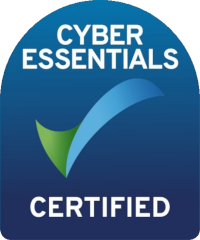BLOG
How can charities & their audience combat climate change?
Join the fight against climate change: discover how charities and their audience can make a difference.
- Service Delivery
- Technology
- Trustee
- Wellbeing
- 10-08-2022
Climate change is one of the most pressing issues of our time, and individuals and organisations need to take action to mitigate its effects. There are a variety of resources available to help you understand the issue and take meaningful steps to reduce your carbon footprint and promote sustainability.
For individuals, one of the best resources is the Environmental Protection Agency's website, which offers a variety of tools and resources to help you understand the issue and take action. The site includes information on energy efficiency, renewable energy, and transportation, as well as tips for reducing waste and conserving water. Additionally, the site offers a carbon footprint calculator that can help you understand your impact on the environment and identify areas for improvement.
Another valuable resource for individuals is the Energy Star program, which is run by the US Department of Energy and the Environmental Protection Agency. The program provides information on energy-efficient products and services, as well as tips for reducing energy consumption.
Organisations can also take action against climate change by implementing sustainable practices.
The Natural Resources Defense Council (NRDC) is a great resource for organisations looking to reduce their environmental impact. They provide a variety of tools and resources, including a Green Business Guide, which offers information on energy efficiency, waste reduction, and water conservation.
350.org is an international climate change campaign that aims to build a global grassroots movement to solve the climate crisis. They provide a wide range of resources, including educational materials, campaigns, and events, as well as opportunities for individuals and organisations to get involved and take action on climate change.
The United Nations Framework Convention on Climate Change (UNFCCC) is an international treaty that aims to stabilise greenhouse gas concentrations in the atmosphere. The UNFCCC website provides a wealth of information on climate change, including the latest scientific findings, news, and events. It also provides information on international policy and negotiations on climate change and how individuals and organisations can get involved.
The Carbon Trust is another great resource for organisations looking to reduce their carbon footprint. They provide a variety of services, including carbon footprint assessments, sustainability strategy development, and carbon offsetting.
The Climate Reality Project, founded by former Vice President Al Gore, is a global organisation that provides information and resources on the impacts of climate change and what we can do to address it. They have a variety of educational resources, including videos, presentations, and interactive tools, as well as information on how to get involved in local and global climate action.
Another important resource for organisations is the Global Reporting Initiative (GRI), which provides guidelines for reporting on sustainability and environmental performance. The GRI's guidelines are widely used by organisations around the world and can help companies communicate their sustainability efforts to stakeholders.
Ultimately, taking action against climate change requires a collective effort from individuals and organisations. By using the resources mentioned above, we can all make meaningful contributions to reducing our carbon footprint and promoting sustainability. The information above information and tools to help individuals and organisations understand the issue, reduce their carbon footprint, and promote sustainability.
In addition to the resources mentioned in the blog post, these additional resources can also be valuable for individuals and organisations looking to take action against climate change.
Lastly, we want to mention three functional and bite-sized values charities can integrate into their mission statement and future practices:
- Promoting Sustainable Energy: Encouraging the adoption of clean and renewable energy sources, such as wind and solar power.
- Climate-Friendly Practices: Implementing environmentally friendly practices in all operations, such as reducing waste, using recycled materials, and reducing carbon emissions.
- Education and Awareness: Raising awareness about the impacts of climate change and promoting sustainability through educational programs, campaigns and initiatives.
We hope you found this article helpful. The information and tools provided above are to help individuals and organisations understand the issue, reduce their carbon footprint, and promote sustainability.

Lucy Greenwell
Marketing Manager At Energise TechnologyLucy is passionate about writing about technology and third sector insight to help organisations meet the needs of stakeholders and end-users.
Contact us
If you'd like to know more about how we can help your organisation, please get in touch.
Subscribe to our newsletter
About Us
Innovative digital solutions for education - supporting policy, leadership, delivery, and learning

Useful Links
Contact Us
Trent Lodge
Stroud Rd
Cirencester
GL7 6JN
0117 4573283